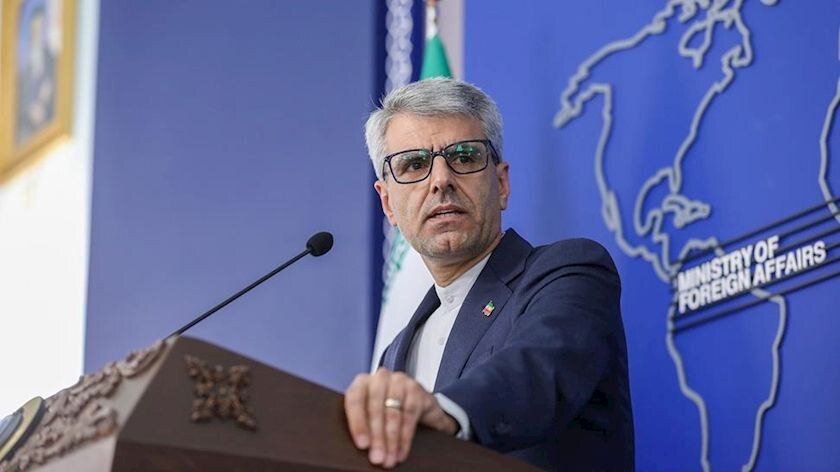US deliberately sabotaged diplomacy, says Iran’s foreign ministry after American strikes

TEHRAN — The spokesperson for the Iranian Foreign Ministry has strongly condemned the ongoing joint U.S.-Israeli military strike on Iranian territory, calling it a “deliberate sabotage of diplomacy” that coincided with Tehran’s preparations to enter a new round of nuclear negotiations.
The remarks come amid rising tensions in the region, with Iranian leaders warning that the attacks jeopardizes not only peace efforts but also the very foundations of international law.
Esmaeil Baghaei addressed the media during his weekly press briefing on Monday, stating that the strikes took place just as Iran was preparing to join the sixth round of diplomatic talks with a country that, he noted, “has now become an active participant in the war against Iran.”
“This military aggression occurred merely two days before negotiations were set to resume,” Baghaei said. “It was an outright betrayal—not just of diplomacy and dialogue—but also of moral principles, human civilization, and the hard-won legal norms established after the Second World War. It sends a dangerous message to the international community that dialogue can be discarded at will.”
He stressed that such actions would not deter Iran from defending its sovereignty, adding, “There is no doubt that we will draw lessons from this moment. Should we fail to do so, it will not only be a failure for our government, but for our people, our history, and future generations.”
Baghaei reiterated that the Islamic Republic remains firmly focused on defending the nation: “Our full attention is devoted to protecting the territorial integrity and dignity of Iran. We will not allow distractions or side issues to weaken our resolve. Our top priority right now is to defend our homeland resolutely and repel the aggression of those who, with backing from the United States and certain European countries, have launched an unjust and unlawful war against this nation.”
American B-2 bombers attacked Iran’s nuclear facilities in three locations on Sunday. That came 10 days after Israel began a deadly military campaign against Iran, which has so far resulted in the death of over 400 civilians and injury of more than 2000 others. Iran has been responding with daily waves of missile and drone attacks targeting Israeli sites across the occupied territories. Massive destruction has been recorded in major cities like Tel Aviv, Haifa, and Ashdod, despite the Israeli regime’s extensive attempts at censoring the aftermath.
'Iran never targeted civilian sites'
He also rejected accusations that Iran had targeted civilian sites in recent operations, saying such claims are “completely unfounded.”
“The Iranian armed forces have acted solely within the framework of legitimate self-defense. Only military targets have been selected—targets that are fully lawful under international law. It is essential to remember that we did not start this war. It was imposed on us.”
'Diplomatic consistency must not be perceived as weakness'
Baghaei pushed back against suggestions that Iran’s continued willingness to pursue dialogue, even in the face of military provocation, should be perceived as weakness.
“We must not allow the deceit and dishonesty of the other side to cast doubt on our principled approach,” he said. “The Islamic Republic of Iran has been committed to diplomacy from the outset, and this commitment should never be mistaken as a strategic vulnerability.”
He pointed out that the European Union and the three European signatories of the Joint Comprehensive Plan of Action (JCPOA) remain legally bound to uphold UN Security Council Resolution 2231.
“As long as this resolution remains in effect, they are obligated to fulfill their responsibilities under it. Our consultations and interactions with these countries are aimed at holding them accountable to that legal and political commitment.”
He also recalled that Iran had remained engaged with all parties to the JCPOA—except the United States, which fully withdrew from the deal.
“Were there not five full rounds of negotiations already held? Did we not respond to proposals from the American side?” Baghaei asked. “In fact, we were scheduled to present our own proposal during the sixth round of negotiations in Muscat on Sunday. This meeting had been coordinated in advance, based on a clear and explicit proposal from the American side, and facilitated through Oman.”
Leave a Comment